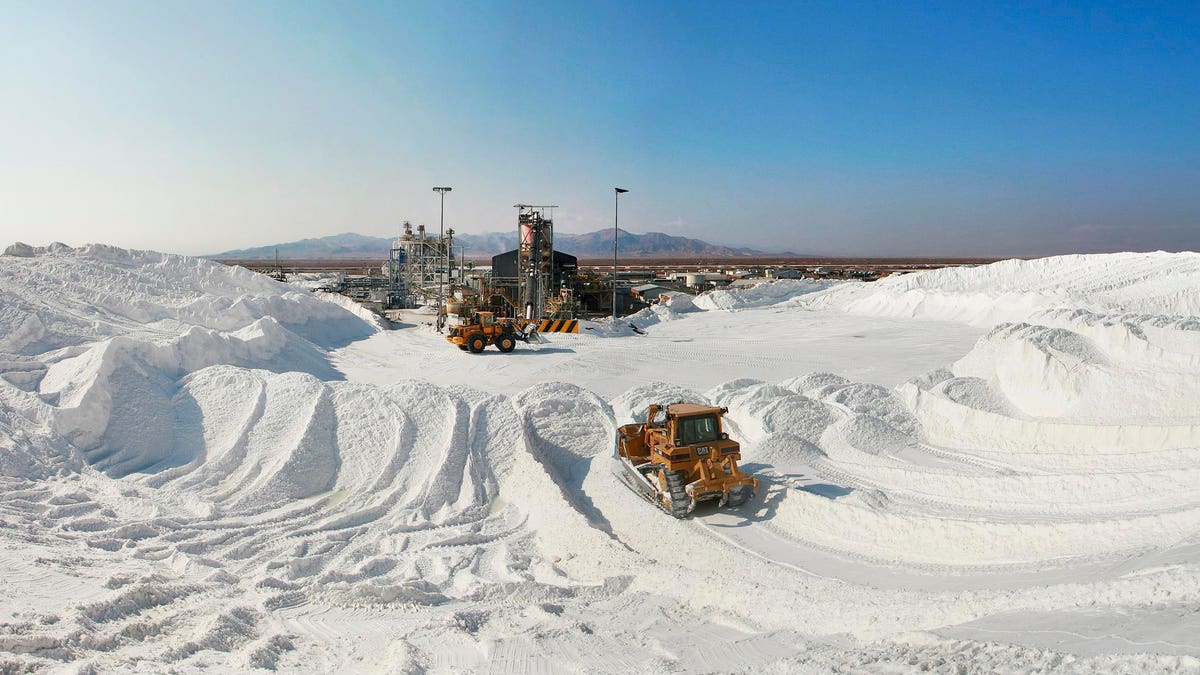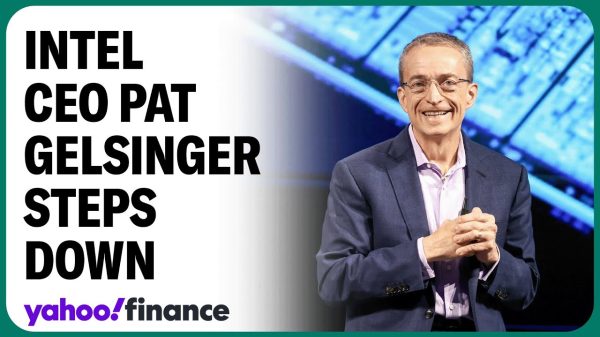Summary
- Lithium prices have begun to stabilize after a fall from all-time highs.
- The CEO of Albemarle recently bought shares of his company, according to insider trade data.
The largest supplier of lithium for electric vehicle batteries, Albemarle Corp. (ALB, Financial), has seen its share price trade in a tight range since around mid-2021, unable to make a break higher despite a three-year revenue per share growth rate of 22.6% and a three-year earnings per share growth rate of 65.7%. With profitability growing much faster than the share price, the price-earnings ratio has fallen to 6.23.
Despite the company’s stellar growth, pressures such as a weakening global economy and growing lithium production worldwide have weighed on its stock amid fears that lithium prices could decline. To make matters worse, in April, the government of Chile announced plans to eventually nationalize its lithium resources by 2043, causing investors to worry that Albemarle might be booted out of the country.
Nevertheless, Albemarle’s CEO, Kent Masters, remains optimistic about his company’s growth outlook and its ability to continue operations in Chile. He recently put his money where his mouth is; according to GuruFocus’ insider trades data, Masters bought 5,470 shares of Albemarle stock on May 5, bringing his total number of shares owned to 51,466. On the same day, Executive Vice President and General Counsel Kristin Coleman also bought 1,373 shares.
Lithium market shows signs of stabilizing
Lower lithium spot prices were one of the key factors weighing on Albemarle and other lithium producers’ stock prices. After a period of avid buying as lithium demand soared on the back of optimistic forecasts for electric vehicles and other sources of electrification, the market entered an extended inventory destock.
This kind of volatility is part and parcel with any commodity stock. The good news is lithium prices have been stabilizing more recently, beginning a slight rebound in May. This scenario could prompt a wave of merger and acquisition activity due to the combination of lower valuations and the positive long-term outlook for lithium demand.
Albemarle did issue a proposal to buy Australian battery metals producer Liontown Resources (ASX:LTR, Financial) in March, but Liontown rejected the offer, claiming it was too low. It remains to be seen whether Albemarle will be able to take advantage of the lithium price downturn to make a valuable acquisition. The company’s most recent acquisition was Guangxi Tianyuan New Energy Materials Co., which was acquired in October 2022 for $200 million.
Long-term growth outlook remains strong
Some investors worry the “lithium gold rush” will result in too much competition, driving lithium prices down and thus decreasing profitability across the board.
Those fears are certainly valid in the near term. According to estimates from ReportLinker, the global lithium market could grow at a compound annual rate of 15.7% through 2030. Global lithium production appears to be on track to grow at a 33% CAGR through 2025 according to Bank of America
BAC
However, as long as demand growth does not outpace supply growth in the long run, lithium prices are unlikely to enter a decline that lasts forever. Commodities tend to be self-regulating in this respect because when prices for the underlying commodity decline too much, investments in new projects begin to evaporate.
Albemarle’s management knows this, which is why it assumes a price of $20,000 per metric ton in its long-term guidance. That is higher than the 2021 average price of $12,600, but lower than the 2022 average price of $37,000. For now, lithium prices hit a trough of around $25,000 per metric ton before rebounding.
Will Chile’s lithium nationalization hurt Albemarle?
The latest blow to Albemarle’s stock came in the form of the government of Chile announcing it plans to gradually nationalize its lithium industry by 2043. While that does seem alarming at first glance, as Albemarle has operations in Chile, it is still 20 years away from completion. Only 29.4% of Albemarle’s aggregate lithium production came from Chile in fiscal 2022, so if it really was getting booted out of the country, there would be plenty of time to wind down and transfer/sell operations without booking too much of a loss.
Albemarle’s CEO does not seem to think getting booted out of Chile is likely, though. In fact, he sees potential for expanding operations in Chile. “We’ve never said there’s a hard no in renegotiating before 2043,” Masters said in an interview. “Post-2043, or after we renegotiate, the government will be involved, probably as a partner. And we would anticipate even before that having the opportunity to perhaps get even more rights for additional resources.”
The DLE debate
Further expansion in Chile, not to mention the ability to remain competitive in an evolving market, could hinge on whether Albemarle can successfully implement direct lithium extraction, a relatively new technology that has the potential to dramatically speed up lithium production at a higher efficiency than evaporation ponds.
While much faster and less immediately disruptive to local ecosystems compared to Albemarle’s existing solar-powered evaporation ponds, DLE uses a lot of electricity and, more crucially, clean water. DLE requires approximately 10 tonnes of potable water for every tonne of lithium produced. Water can be desalinated for this purpose, but desalination also uses a lot of electricity and produces chemical-laded brine.
Albemarle has a plan to bring desalinated seawater to Chile’s Salar de Atacama to introduce DLE, but using the technology in Chile will prove difficult. Instances of achieving commercial viability with DLE are already rare, and Chile’s low amounts of water add the extra expense of desalination to the equation.
Takeaway
Albemarle undoubtedly has its fair share of headwinds given recent declines in lithium prices and Chile’s plans to nationalize its lithium industry. However, lithium prices appear to have stabilized well above pre-pandemic levels for the time being, and Albemarle projects a long-term price of $20,000 per metric ton. The company is also in a good position to pursue acquisitions as well as research and development thanks to sky-high lithium prices in 2022, and the stock is trading much cheaper than it was a few years ago considering recent price declines have met strong top- and bottom- line growth. Overall, it is easy to see why the CEO is bullish on the stock, even if the lithium market has been going through a correction.
Disclosures
I/we have no positions in any stocks mentioned, and have no plans to buy any new positions in the stocks mentioned within the next 72 hours.
Read the full article here













